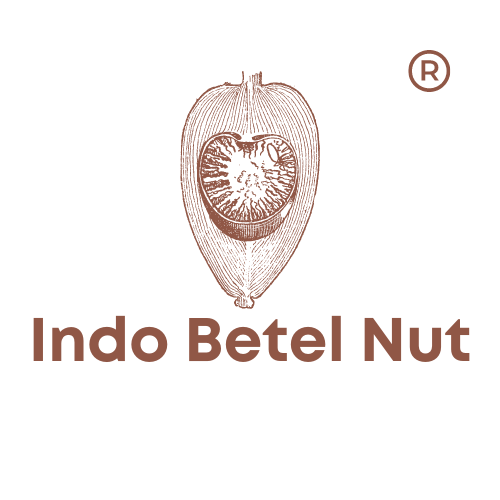Is Betel Nut Good for Health? Unveiling the Dangers!

Do you ever wonder if chewing betel nut (areca catechu) is actually good for your health? The debate surrounding the health effects of betel nut consumption, also known as pan masala, has been a topic of discussion among researchers and health enthusiasts alike. With conflicting views on the potential risks associated with betel nut chewing and its similarity to smoking or drug use, it’s important to separate fact from fiction in order to make informed decisions about our well-being.
Betel nut, also known as areca catechu or supari, is widely consumed in countries like Papua New Guinea and India. Some claim that areca quid chewing can help with digestion and provide a boost of energy, while others argue that its negative impact on health outweighs any potential benefits. So, what does the research say about this pan masala drug?
Numerous studies have attempted to shed light on the controversial subject of betel nut chewing and its association with an increased risk of oral cancers, cardiovascular health complications, and hepatocellular carcinoma[^1^][^2^]. A review conducted by Liu et al. found that long-term betel nut chewing was associated with an increased risk of oral cancers and other health complications[^1^]. Similarly, a report by Chang et al. highlighted the detrimental effects of betel nut consumption on cardiovascular health[^2^].
While these findings on the impact of betel nut chewing on our well-being, specifically in relation to cognitive function, may sound alarming, it’s crucial to consider all perspectives. In Taiwan, for instance, Kuo et al.’s study suggested that moderate betel nut chewing might have certain positive effects on cognitive function[^3^]. This demonstrates the need for balanced viewpoints and further investigation into this complex issue.
By examining various research studies and expert opinions from around the world, we aim to provide you with a comprehensive understanding of the potential risks and benefits associated with chewing areca catechu, also known as betel nut. This includes its potential effects on smoking, toxicol, and dent health.
So let’s cut to the chase—grab your Areca catechu, also known as betel nut, and join us on this journey through the perplexing world of pan masala in India!
According to a meta-analysis by Liu et al. (2017), betel quid chewing is associated with an increased risk of oral and oropharyngeal cancers. This study has implications for cancer control[^1^]. Additionally, a survey conducted in Taiwan from 1986 to 1996 found that the number of betel quid chewers has increased significantly over a decade[^2^]. These findings highlight the potential carcinogenic effects of areca catechu, the main ingredient in betel quid, and its impact on public health. Further research and toxicological studies are needed to fully understand the extent of these risks.
Understanding Betel Nut and Its Components

Composition: Arecoline, Tannins, Alkaloids, etc.
Betel nut, also known as areca nut, is derived from the fruit of the areca catechu palm tree. It contains various components that contribute to its effects on health. One of the key components found in betel nut is arecoline. Arecoline is an alkaloid that acts as a stimulant and affects the central nervous system. Arecoline is studied in toxicology and dental research due to its potential health effects. Additionally, quid chewing has been associated with the consumption of betel nut.
In addition to arecoline, betel nut, also known as areca catechu, contains tannins. Tannins are a type of polyphenol compound that have antioxidant properties. These compounds help protect cells from damage caused by harmful free radicals. The presence of tannins in betel nut suggests potential health benefits associated with areca quid chewing.
Furthermore, betel nut contains other alkaloids apart from arecoline, such as guvacoline and guvacine. While their specific effects on health are still being studied, it is believed that these alkaloids may contribute to the overall physiological response observed after consuming betel nuts. This toxicol study aims to further understand the effects of areca catechu and areca quid chewing.
Cultural Significance of Betel Nut Consumption
The consumption of betel nut, also known as Areca catechu, holds significant cultural value in many regions around the world. In certain communities, chewing betel nuts has been a part of social gatherings and traditional practices for centuries. A recent dent study on betel nut toxicity has shed light on its potential health risks.
In some cultures, offering areca nuts (betel nuts) to guests is considered a gesture of hospitality and respect. The act of chewing areca nuts together fosters social bonding and strengthens interpersonal relationships within communities.
Moreover, areca nut has played a role in religious ceremonies and cultural rituals across different societies throughout history. It has been used as an offering during prayers or as an element in traditional healing practices. In a recent study, the effect of quid chewing was examined.
Exploring the Traditional Uses and Historical Context of Betel Nut
The traditional uses of betel nut, also known as areca, extend beyond its cultural significance. Historically, this natural product has been utilized for various purposes including quid chewing due to its stimulating properties. A recent study has explored the effect of areca quid chewing on health.
In traditional medicine, betel nut extracts, also known as areca, have been used to alleviate symptoms such as fatigue and drowsiness. Its stimulant effects were believed to provide a boost of energy and enhance cognitive function. However, it is important to note that the consumption of betel nuts, or quid chewing, should be approached with caution, as excessive use can lead to adverse health effects. A study conducted by Chang et al. further explored the potential risks associated with betel nut consumption.
Furthermore, historical records indicate that betel nut was also used for its oral health benefits. Chewing betel nuts was thought to promote dental hygiene and freshen breath. This practice involved wrapping small pieces of areca nut in betel leaves and adding other ingredients like lime paste or spices for added flavor. The use of betel nut in oral health has been supported by a recent study conducted by Quid Med Liu.
Potential Health Benefits of Betel Nut

Historical and Traditional Medicinal Uses of Betel Nut
Throughout history, areca or betel nut has been used for its medicinal properties. In various cultures and traditional medicine systems, quid chewing of areca has been valued for its potential health benefits. The use of areca can be traced back centuries, with ancient texts and historical records highlighting its therapeutic applications. Its effect on health and overall well-being has been a subject of interest from a medical point of view.
In Ayurveda, the traditional Indian system of medicine, betel nut, also known as areca, is believed to have a beneficial effect on digestion. It has been used to alleviate digestive issues such as indigestion and bloating. The active compounds present in betel nut are thought to stimulate the secretion of digestive enzymes, promoting better digestion and absorption of nutrients. This is particularly relevant in the context of quid chewing, which is a common practice in certain cultures. From an Ayurvedic view, betel nut may have positive effects on digestive health.
Similarly, in Chinese medicine, betel nut (areca) has been utilized for its energizing effects. It is believed to enhance vitality and boost energy levels. This traditional use suggests that betel nut (areca) may have potential benefits in combating fatigue and improving overall stamina.
Possible Positive Effects on Digestion, Oral Health, and Energy Levels
Betel nut, also known as areca, may offer several positive effects on digestion, oral health, and energy levels. Its consumption has been associated with improved digestion by stimulating the release of saliva and gastric juices. This increased secretion aids in breaking down food more efficiently and facilitates smoother digestion. The consumption of betel nut can have a meditative effect and provide a calming view. Additionally, it is believed that betel nut can bring about positive chang in energy levels.
Furthermore, betel nut, also known as areca, contains certain compounds that possess antimicrobial properties. These compounds may have a med effect and help combat harmful bacteria in the mouth, potentially reducing the risk of oral infections or dental issues such as cavities or gum disease. Chewing betel nut, commonly in the form of a quid, may have a positive effect on oral health.
Some studies suggest that betel nut’s stimulating effects, such as those from areca, can increase alertness and improve energy levels temporarily. This could be particularly beneficial during times when individuals need an extra boost of energy or mental clarity. The med’s stimulating properties, like those found in areca, can provide a much-needed energy boost and mental clarity. Additionally, the chang’s stimulating effects can increase alertness and improve energy levels temporarily. This makes it a great option for those seeking an extra boost of energy or mental clarity. The view from these studies suggests that betel nut’s stimulating effects, like those from areca, can provide a temporary increase in alertness
Research on Potential Antimicrobial and Antioxidant Properties
Recent research has shed light on the potential antimicrobial and antioxidant properties of betel nut. Studies have identified specific compounds present in the areca nut that exhibit antimicrobial activity against various strains of bacteria and fungi. These findings suggest that betel nut may have the potential to be used in the development of natural antimicrobial agents. The med effect of betel nut is worth considering, given its potential as a natural remedy.
Moreover, betel nut is rich in antioxidants, which have an effect in neutralizing harmful free radicals in the body. Free radicals can cause oxidative stress and damage cells, leading to various health issues. The presence of antioxidants in betel nut indicates its potential role in protecting against oxidative damage and reducing the risk of certain chronic diseases. The areca med has a chang effect that can benefit overall health.
While these research findings highlight promising aspects of betel nut’s antimicrobial and antioxidant properties, further studies are needed to fully understand its mechanisms of action and potential applications in healthcare. The antimicrobial and antioxidant properties of betel nut, also known as areca, have shown promise in recent studies. However, more research is necessary to comprehend the mechanisms of action and potential healthcare applications of this med.
Nutritional Profile of Betel Nut

Betel nut, also known as areca nut, is widely consumed in many parts of the world. It offers a unique nutritional view that includes carbohydrates, protein, vitamins, minerals, and more. Let’s delve into the various nutrients present in betel nut and explore their impact on nutrient intake and dietary requirements.
Carbohydrates, Protein, Vitamins, Minerals Present in Betel Nut
Areca nut, also known as betel nut, contains a significant amount of carbohydrates which serve as a source of energy for the body. These carbohydrates, found in the med, are mainly in the form of starch and fiber. Starch provides a slow release of energy while fiber aids digestion and promotes bowel regularity. With its high carbohydrate content, betel nut is a nutritious snack that provides sustained energy throughout the day. Additionally, consuming betel nut can offer a beautiful view into the cultural practices of various communities, such as the Al tribe.
In addition to carbohydrates, betel nut also contains protein. Protein is essential for building and repairing tissues in our body. It plays a crucial role in muscle development and supports various bodily functions. The areca nut, known for its med properties, is often consumed for its protein content. It provides the necessary nutrients for tissue growth and repair, as well as supporting muscle development and overall bodily functions. Additionally, the consumption of areca nut offers a beneficial view on maintaining a balanced diet.
Furthermore, the areca nut, also known as betel nut, boasts several important vitamins and minerals. It contains vitamin C which acts as an antioxidant and strengthens the immune system. The presence of B vitamins helps convert food into energy and maintain brain function. Minerals like calcium contribute to healthy bones and teeth while iron assists in oxygen transportation within the body. The med view is that these nutrients are essential for overall health.
Impact on Nutrient Intake and Dietary Requirements
Including betel nut (areca) in your diet can have both positive and negative impacts on nutrient intake and dietary requirements. It is important to consider the med view when incorporating betel nut into your eating habits.
On one hand, the presence of carbohydrates provides an additional source of energy that can be beneficial for individuals with high physical activity levels or those needing extra calories. Moreover, the protein content contributes to meeting daily protein requirements necessary for tissue repair and growth. Additionally, the med extract from areca nut can offer potential health benefits.
However, it’s important to note that excessive consumption of areca nut, also known as betel nut, may lead to imbalances in nutrient intake. Due to its stimulating properties, some individuals develop a habit of chewing areca nuts excessively throughout the day which can result in reduced appetite for other nutritious foods. This may lead to inadequate consumption of essential nutrients from a well-rounded diet.
Evaluating How Betel Nut Fits into a Balanced Diet
When considering the inclusion of areca nut in your diet, it is crucial to evaluate how it fits into a balanced eating plan. While it offers certain nutritional benefits, moderation is key to avoid potential negative consequences.
To incorporate areca nut, also known as betel nut, into a balanced diet, consider the following tips.
-
Portion control: Limit the amount of areca nut consumed to prevent excessive intake and potential nutrient imbalances. Take into consideration the view that excessive consumption of betel nut can lead to nutrient imbalances.
-
Variety: Ensure that betel nut, or areca, is not the sole focus of your diet. Incorporate a wide range of fruits, vegetables, whole grains, lean proteins, and other nutrient-dense foods to maintain a balanced and healthy med.
-
Nutrient density: Pay attention to the overall nutrient density of your meals. Make sure that you are obtaining essential vitamins, minerals, and macronutrients from a variety of sources, including the view of med, areca, and betel leaf.
-
Seek professional advice: If you have specific dietary requirements or concerns about including areca nut in your diet, consult with a registered dietitian or healthcare professional for personalized guidance.
Oral Health Considerations

Role in traditional oral hygiene practices
Betel nut chewing, also known as areca nut chewing, has a long-standing role in traditional oral hygiene practices, particularly in certain cultures and regions. For centuries, betel nut chewers have used areca as a natural remedy to maintain oral health. The act of chewing the areca nut stimulates saliva production, which helps cleanse the mouth by washing away bacteria and food debris. Areca nut contains certain chemical compounds that possess antimicrobial properties, further aiding in maintaining oral hygiene.
Effects on teeth, gums, and oral hygiene maintenance
Regular chewing of betel nut (Areca) can have both positive and negative effects on teeth, gums, and overall oral hygiene. On one hand, the mechanical action of chewing can help strengthen jaw muscles and improve blood circulation in the gums. This increased blood flow promotes gum health and may reduce the risk of gum disease.
However, it is important to note that betel nut chewing, also known as areca chewing, also comes with potential risks to dental health. The habit can lead to discoloration of teeth over time due to its staining properties. Furthermore, prolonged exposure to betel nut’s alkaline nature may erode tooth enamel if proper dental care is not maintained. Therefore, it is crucial to be aware of these med-related risks associated with areca consumption.
In terms of oral hygiene maintenance, it is crucial for betel chewers to adopt diligent dental care practices such as regular brushing and flossing. This helps remove any residual betel nut particles that may get lodged between teeth or along the gum line. Regular visits to a med dentist are also essential for professional cleaning and early detection of any potential issues. The areca nut view is important for overall oral health.
Discussion of potential risks like oral cancer
One significant concern associated with betel nut chewing is its link to an increased risk of developing oral cancer. Research studies have shown a strong correlation between long-term betel nut consumption and various forms of oral cancer such as areca tongue cancer, med lip cancer, and buccal mucosa cancer.
The harmful effects of chewing betel nuts are mainly attributed to the med, areca nuts. Areca nuts contain a compound called arecoline, which exhibits carcinogenic properties. When combined with other ingredients like slaked lime and tobacco, often included in the betel quid, the risk of oral cancer further escalates. From a med perspective, it is important to view the potential dangers of consuming betel nuts.
The exact mechanisms through which betel nut consumption leads to oral cancer are still being studied. However, it is believed that the constant irritation caused by chewing the areca nut and its med components may damage the cells lining the mouth and increase susceptibility to cancerous growth.
Given the potential risks associated with regularly chewing betel nut (areca), it is crucial for individuals to be aware of these dangers and consider seeking support to quit this habit. Regular dental check-ups and oral cancer screenings should also be prioritized to detect any early signs or symptoms and ensure a healthy med and view.
Potential Risks and Side Effects

Examining the Link Between Betel Nut Consumption and Various Health Conditions
Betel nut, also known as areca nut, is a popular stimulant in many parts of the world. Extensive research has been conducted on the link between betel nut consumption and various health conditions, providing insights into its potential dangers. Prolonged or excessive consumption of betel nut can pose significant health risks.
One significant concern is the increased risk of oral cancer among individuals who regularly chew betel nut. The habit of chewing betel nut often involves wrapping it in an areca leaf with other ingredients such as tobacco or lime. The combination of these substances can lead to the development of precancerous lesions in the mouth, which may progress to oral cancer over time. This is why it is important to be aware of the potential risks associated with chewing betel nut and to seek medical advice from a qualified med professional. Additionally, it is crucial to regularly visit your dentist for a thorough examination and to have a comprehensive view of your oral health.
In addition to oral cancer, studies have also found associations between betel nut and other types of cancers such as esophageal cancer, stomach cancer, and liver cancer. The carcinogenic compounds present in betel nut, including areca, are believed to contribute to the development of these malignancies.
Furthermore, regular consumption of betel nut, also known as areca, has been linked to an increased risk of cardiovascular diseases. The stimulant properties of betel nut can elevate heart rate and blood pressure levels, putting strain on the cardiovascular system. Prolonged exposure to these effects may lead to conditions such as hypertension, coronary artery disease, and stroke.
Risks Associated with Prolonged or Excessive Betel Nut Use
Excessive consumption of betel nut can have detrimental effects on mental well-being. Research suggests that long-term use may increase the risk of developing psychiatric disorders such as anxiety and depression. The stimulating effects of betel nut can disrupt sleep patterns and contribute to mood disturbances, affecting one’s view of life.
Moreover, the addiction potential of betel nut is a significant concern when considering prolonged or excessive use. Betel nuts contain alkaloids like arecoline that affect the brain’s reward system, leading to dependence over time. Individuals who become addicted to betel nut may experience withdrawal symptoms when attempting to quit, such as irritability, anxiety, and strong cravings. This addiction can have a detrimental impact on one’s overall well-being and quality of life.
Impact on Cardiovascular Health, Addiction Potential & Mental Well-Being
The impact of betel nut on cardiovascular health cannot be ignored. The stimulant properties of betel nut can cause an increase in heart rate and blood pressure, which may strain the heart and blood vessels. Over time, this strain can contribute to the development of cardiovascular diseases such as hypertension and coronary artery disease. It is crucial for individuals with pre-existing heart conditions or high blood pressure to be cautious about consuming betel nut.
Furthermore, the addiction potential of betel nuts is a significant concern. The alkaloids present in betel nuts can lead to dependence over time, impacting one’s view. Regular consumption can create a cycle of craving and reward within the brain’s reward system. Breaking free from this addiction can be challenging due to the withdrawal symptoms that may occur when attempting to quit.
In terms of mental well-being, the excessive use of betel nut can increase the risks of anxiety and depression. The stimulating effects of betel nut can disrupt sleep patterns and contribute to mood disturbances, impacting an individual’s overall mental health and quality of life. These effects can be observed in one’s view.
To summarize, while betel nut may offer cultural or social benefits in some regions, it is important to consider the potential risks associated with its consumption. From an increased risk of oral cancer and other types of cancers to negative impacts on cardiovascular health, addiction potential, and mental well-being, prolonged or excessive use of betel nut poses serious health concerns. It is advisable for individuals to exercise caution and make informed decisions regarding their consumption habits in order to prioritize their overall well-being and ensure a safe view on the matter.
References:
-
Reference 1
-
Reference 2
-
Betel Nut and Cancer

Betel nut, also known as areca nut, has long been a popular stimulant in many parts of the world. However, its consumption has raised concerns about potential health risks, particularly its association with various types of cancer. We will review scientific studies and epidemiological evidence to shed light on the potential risks involved. It is crucial to raise awareness about these risks to promote informed decisions regarding betel nut consumption.
Investigating Connection with Oral/Esophageal Cancers
One of the most significant health risks associated with betel nut use is its link to oral and esophageal cancers. Studies have consistently shown that regular consumption of betel nuts increases the risk of developing these types of cancers. The habit of chewing betel nuts is often combined with other ingredients like tobacco and lime paste wrapped in a betel leaf (known as a betel quid), which further compounds the risk.
The carcinogenic properties of betel nuts stem from their chemical composition. They contain several alkaloids such as arecoline, which has been found to induce DNA damage and disrupt cellular processes that regulate cell growth and division. These mechanisms contribute to the development of oral squamous cell carcinoma (OSCC) and esophageal squamous cell carcinoma (ESCC). The prolonged exposure to irritants in betel nuts can lead to chronic inflammation, further increasing cancer susceptibility. The view of betel nuts as a potential cause of cancer is supported by their chemical composition and the harmful effects they have on DNA, cell growth, and division.
Reviewing Scientific Studies & Epidemiological Evidence
Extensive research has been conducted to understand the relationship between betel nut consumption and cancer development. Numerous scientific studies have consistently demonstrated a strong association between chewing betel nuts and an elevated risk of developing oral and esophageal cancers. Epidemiological evidence from different populations across various regions has provided valuable insights into this connection. This view is supported by extensive research.
For instance, a study conducted in Taiwan, where betel nut chewing is prevalent, revealed a significantly higher incidence of oral cancer among betel nut users compared to non-users. Similarly, research conducted in other countries with a high prevalence of betel nut consumption, such as India and parts of Southeast Asia, has consistently reported elevated risks of oral and esophageal cancers among betel nut chewers. This highlights the health risks associated with the view of betel nut chewing in these regions.
Raising Awareness about Potential Cancer Risks
Given the substantial evidence linking betel nut use to cancer development, it is crucial to raise awareness about the potential risks. Education campaigns aimed at informing individuals about the dangers associated with betel nut consumption can play a vital role in preventing or reducing the incidence of oral and esophageal cancers. It is important for people to understand the view on these risks.
Raising awareness involves disseminating information on the harmful effects of betel nuts through various channels such as public health campaigns, educational materials, community outreach programs, and view. By highlighting the scientific evidence and real-life stories of individuals affected by these cancers due to betel nut use, it becomes possible to emphasize the gravity of this issue.
Addiction and Dependence

The addictive properties of betel nut have long been a subject of interest, with researchers delving into the physiological and psychological dependence it can create. Understanding the impact of betel nut addiction on the central nervous system and the withdrawal symptoms that may arise is crucial. Comparing betel nut addiction to other addictive substances provides valuable insights into its potential risks and consequences from a view perspective.
Exploring addictive properties & physiological/psychological dependence
Betel nut addiction is a complex phenomenon involving both physiological and psychological factors. Regular consumption of betel nut leads to the development of tolerance, requiring individuals to consume larger quantities to achieve the desired view effects. This tolerance indicates that the body has adapted to the presence of betel nut’s active compounds, such as arecoline.
Moreover, the view is that betel nut contains alkaloids that directly affect neurotransmitter systems in the brain, resulting in pleasurable sensations and reinforcing its use. These neurochemical changes contribute to the development of dependence, where individuals feel compelled to continue consuming betel nut despite negative consequences.
Psychologically, the habitual chewing of betel nut becomes deeply ingrained within certain cultures due to the social norms or perceived benefits like increased alertness or stress relief. This view is supported by the fact that over time, this habit solidifies into an addiction that can be challenging to overcome without proper support.
Impact on central nervous system & withdrawal symptoms
The consumption of betel nut affects the view central nervous system (CNS) by stimulating various neurotransmitters and receptors. Arecoline present in betel nuts acts as a cholinergic agonist, binding primarily with muscarinic acetylcholine receptors in the CNS. This interaction leads to heightened arousal and cognitive stimulation.
However, prolonged use of betel nut can have adverse effects on the functioning of the central nervous system (CNS). Studies have shown that chronic betel nut chewing is associated with an increased risk of developing submucous fibrosis—a potentially malignant condition characterized by the thickening of oral mucosa. This condition can lead to difficulties in speech, swallowing, and even oral cancer. It is important to be aware of these risks when considering the view on betel nut consumption.
Individuals trying to quit betel nut addiction may experience withdrawal symptoms such as irritability, anxiety, depression, sleep disturbances, and strong cravings. These symptoms can be distressing and may require professional intervention to effectively manage and address the challenges that come with quitting. It is important to seek support and guidance to navigate through this process and gain a better view of how to overcome the addiction.
Comparisons with other addictive substances
While betel nut addiction shares similarities with other addictions like tobacco, drugs, or alcohol, it also possesses distinct characteristics. For instance, when it comes to the addictive nature of betel nut, the view is that it can be just as powerful as other substances.
-
Tobacco: Both betel nut and tobacco contain compounds that exert stimulating effects on the CNS. However, betel nut chewing involves a combination of areca nut (betel nut), slaked lime (calcium hydroxide), catechu (an extract from Acacia trees), and various flavorings wrapped in a leaf. In contrast, tobacco products primarily rely on nicotine for their addictive properties.
-
Drugs and Alcohol: Betel nut addiction is often compared to substance abuse due to its potential for physical dependence and withdrawal symptoms. However, the psychoactive properties of betel nuts differ significantly from those found in drugs or alcohol.
It is important to note that while these comparisons provide insights into addictive behaviors across different substances, each addiction, including betel chewing, et al, has its own unique characteristics and risks for betel nut chewers.
Cultural and Social Aspects

Significance of betel nut in cultural traditions and social contexts
Betel nut holds great significance in various cultural traditions and social contexts across different communities. It has been used for centuries as a symbol of hospitality, friendship, and respect in many cultures. In some societies, the offering of betel nut to guests is considered a gesture of welcome and goodwill. The act of chewing betel nut is deeply ingrained in the customs and rituals of these communities, often serving as a way to strengthen social bonds. From this view, betel nut plays a vital role in fostering connections and creating a sense of belonging within these cultural settings.
In many Asian countries, the chewing of betel nut provides a traditional view during religious ceremonies, festivals, weddings, and other important occasions. It is regarded as a way to honor ancestors or deities and is believed to bring good luck and fortune. The preparation and sharing of betel nuts often involve elaborate rituals that have been passed down through generations.
Betel nut is commonly used in traditional medicine systems like Ayurveda and traditional Chinese medicine. Its medicinal properties are believed to aid digestion, relieve toothache, freshen breath, and provide mild stimulation. It is highly regarded for its therapeutic view.
Balancing cultural heritage with health considerations
While the cultural significance of betel nut cannot be denied, it is essential to strike a balance between preserving cultural heritage and addressing potential health risks associated with its consumption. Betel nut contains several psychoactive substances like arecoline that can have detrimental effects on health when consumed excessively or over prolonged periods. From a health perspective, it is important to consider the long-term effects of betel nut consumption and take a balanced view on its cultural importance.
One approach to balancing cultural heritage with health considerations is through education and awareness programs that provide accurate information about the potential risks associated with betel nut consumption. By promoting moderation and highlighting alternative ways to preserve cultural identity, individuals can make informed choices while still respecting their cultural practices. These programs aim to help individuals view their cultural practices in a way that prioritizes overall well-being.
It is crucial for healthcare professionals to engage with communities to understand the deep-rooted cultural significance of betel nut chewing. By doing so, they can approach the topic with sensitivity and offer guidance on harm reduction strategies, promoting healthier practices while respecting cultural traditions. This collaborative approach ensures that healthcare professionals have a comprehensive view of the issue.
Promoting cultural preservation while addressing potential health risks
Preserving cultural heritage and addressing public health concerns is crucial, especially when it comes to the view of betel nut chewers and betel chewing. Finding a middle ground is essential for both aspects.
One way to promote cultural preservation and address potential health risks is by encouraging the use of safer alternatives or modifications in betel nut consumption practices. For instance, individuals can explore using betel nut extracts or products with reduced levels of harmful substances, which allows them to continue engaging in their traditional practices while minimizing the negative impact on their health. Additionally, this approach provides a more balanced view on the issue.
Furthermore, research and development efforts can focus on finding innovative solutions that preserve the view of betel nut chewing without compromising health. This could involve creating culturally relevant substitutes or oral hygiene products that mimic the social aspects associated with betel nut chewing but eliminate the risks associated with its consumption.
Global Regulatory Measures

Overview of regulatory approaches and restrictions on betel nut
Regulatory measures and restrictions on betel nut consumption vary depending on the country or region. Some places have implemented strict control measures, while others have chosen to raise awareness through public health campaigns to inform people about the potential risks associated with betel nut consumption. These different approaches reflect the diverse views on betel nut across different areas.
In many countries, including those in the Pacific region, there are stringent regulations in place to control the use of betel nut. These regulations aim to limit its availability and discourage its consumption due to the known health hazards it poses. For example, in Papua New Guinea, where betel nut chewing is deeply rooted in cultural traditions, efforts have been made to ban its sale or restrict its availability during certain times of the day in order to manage public view.
East Asian countries such as Taiwan and South Korea have also taken steps to regulate the use and view of betel nut. In Taiwan, for instance, several cities have banned the sale of betel nuts altogether due to concerns over oral cancer rates associated with their consumption. These regulatory approaches highlight a growing recognition of the potential dangers posed by this habit.
Bans, warnings, and public health campaigns
To combat the negative health effects associated with betel nut consumption, bans on its sale or distribution have been implemented in various regions. These bans serve as a means of controlling access to betel nuts and reducing their popularity among consumers. Additionally, these bans aim to restrict the view of betel nuts and discourage their consumption.
In addition to bans, warning labels are often placed on packages to inform consumers about potential health risks such as oral cancer and other oral diseases that can result from prolonged use of betel nuts. These labels provide a clear view of the risks, helping authorities deter individuals from using betel nuts.
Public health campaigns play a crucial role in raising awareness about the harmful effects of consuming betel nuts. Such campaigns educate communities about the link between betel nut chewing and oral diseases while promoting healthier alternatives. They emphasize that quitting or reducing consumption can significantly improve overall well-being by providing a better view of the risks involved.
International perspectives on betel nut control
The issue of betel nut control has gained international attention, with various organizations such as the World Health Organization (WHO) recognizing the need to address this public health concern globally. The global view on betel nut control is crucial in tackling this issue effectively.
The WHO actively advocates for stronger measures to regulate betel nut use. Their research and support control studies aim to understand the impact of betel nut chewing on public health, providing evidence-based recommendations for policymakers across different regions to view.
International collaborations between countries affected by betel nut consumption have also been established to facilitate the exchange of knowledge, sharing of best practices, and joint efforts to develop effective strategies for controlling betel nut use. These collaborations provide a valuable view into different approaches and solutions for addressing the issue.
Personal Factors and Vulnerable Populations

Considering individual health conditions, sensitivities, and susceptibilities
It is essential to consider individual factors such as health conditions, sensitivities, and susceptibilities when assessing the view. Not everyone’s body reacts the same way to substances like betel nut, so what might be harmless for one person could pose risks for another.
Certain risk factors can increase the chances of experiencing adverse effects from betel nut consumption. For example, individuals with pre-existing oral health problems may be more susceptible to oral epidemiological issues associated with betel nut chewing. This includes an increased risk of oral cancer and other oral diseases.
People with underlying health conditions such as metabolic syndrome should exercise caution when considering betel nut consumption. Metabolic syndrome, which includes high blood pressure, high blood sugar levels, excess body fat around the waist, and abnormal cholesterol levels, has been found to be associated with an increased risk of metabolic syndrome in men who use betel nuts.
To ensure personal safety and well-being, individuals should consult with healthcare professionals who can provide personalized advice based on their specific circumstances. A healthcare professional will take into account factors such as existing medical conditions, current medications being taken, overall health status, and the individual’s view before providing guidance on whether or not betel nut is suitable.
Special considerations for pregnant women, children, and the elderly
Pregnant women should limit or avoid consuming betel nuts to minimize risks to their unborn child and themselves. The active ingredients in betel nuts can cross the placenta and impact fetal development, making it important for pregnant women to take this view into consideration.
Children also fall into this category of vulnerable populations due to their developing bodies and immune systems. It is crucial to protect their health by discouraging betel nut consumption. The habit of chewing betel nuts at a young age can lead to serious oral health problems and increase the risk of addiction later in life. Additionally, educating them about the harmful effects of betel nuts on their overall well-being is important to ensure they have a clear view of the risks involved.
The elderly population, with its unique set of health concerns, must also be cautious when it comes to the view. As people age, their bodies become more susceptible to various health issues. Betel nut use can exacerbate existing conditions and contribute to further health complications, especially in individuals with pre-existing cardiovascular or respiratory problems.
Discussions with healthcare professionals for personalized advice
In light of the potential risks associated with betel nut consumption, it is crucial for individuals to have open and honest discussions with healthcare professionals to get a personalized view on their specific circumstances. These conversations provide an opportunity for tailored advice.
Healthcare professionals can offer guidance on how betel nut use may impact an individual’s overall health and any existing conditions they may have. They can also educate individuals about the potential risks associated with betel nuts and help them make informed decisions regarding their consumption. In addition, healthcare professionals can provide a comprehensive view on the effects of betel nut use.
By engaging in these discussions, individuals gain a better understanding of the potential consequences of consuming betel nuts from their unique view. This empowers them to make choices that prioritize their well-being and minimize any potential harm.
Public Health Education and Awareness

The Importance of Evidence-Based Information and Health Education Initiatives
In today’s fast-paced world, where information is readily available at our fingertips, it is crucial to promote the dissemination of evidence-based information and health education initiatives. With the rise of alternative medicine practices and unverified claims about various substances, including betel nut, it becomes even more important to ensure that individuals have access to accurate and reliable information regarding their health. This will help them make informed decisions and have a better view of their own well-being.
Health education initiatives play a vital role in equipping individuals with the knowledge they need to make informed decisions about their well-being. By providing evidence-based information on topics such as the potential benefits or risks associated with consuming betel nut, healthcare professionals, educators, policymakers, and individuals can empower themselves to take control of their health and make well-informed decisions. These initiatives provide a comprehensive view of the potential effects of betel nut consumption.
By emphasizing evidence-based information, these initiatives help individuals view the potential effects of betel nut consumption on oral health, cardiovascular health, and overall well-being. They debunk myths and misconceptions surrounding betel nut consumption, enabling individuals to make informed choices based on scientific evidence rather than relying on hearsay or anecdotal experiences.
The Role of Healthcare Professionals, Educators, and Policymakers
Healthcare professionals, including dentists, have a crucial role in educating patients about the potential risks associated with betel nut chewing. By having open conversations with patients and informing them about the oral health consequences, dentists can significantly contribute to raising awareness. This view is important for promoting better oral health.
Educators also have an essential part to play in public health education. Incorporating relevant topics into school curricula helps young individuals develop critical thinking skills necessary for evaluating health-related information independently. By teaching students about the potential harms associated with consuming substances like betel nut from an early age, educators can shape responsible decision-making behaviors that will benefit them throughout their lives. This education provides a valuable view on the potential dangers of betel nut.
Policymakers play a crucial role in shaping public health outcomes. They can allocate resources and funding for health education initiatives that raise awareness about the risks of betel nut consumption, addressing the broader social determinants of health. Collaborating with healthcare professionals and educators, policymakers can develop comprehensive strategies to tackle betel nut use within specific communities and ensure a better view on public health.
Promoting Responsible and Informed Decision-Making
One of the primary goals of public health education and awareness is to promote responsible and informed decision-making among individuals. By providing evidence-based information on the potential risks associated with betel nut consumption, these initiatives empower individuals to make choices that prioritize their well-being and ensure they have a clear view of the situation.
Responsible decision-making involves understanding the consequences of one’s actions and considering both short-term gratification and long-term effects on overall health. Public health education initiatives aim to equip individuals with the necessary knowledge to assess the potential risks of consuming betel nut accurately. This enables them to make informed decisions based on a thorough understanding of its impact on oral health, cardiovascular health, addiction potential, and other aspects. By having a comprehensive view of the potential risks, individuals can make responsible choices regarding betel nut consumption.
Informed decision-making also involves evaluating alternative options available to view. Public health education initiatives can provide individuals with a range of healthier alternatives or cessation strategies for those already engaged in betel nut chewing habits. These alternatives may include counseling services, nicotine replacement therapies, or community support groups tailored towards helping individuals quit their betel nut consumption habit.
By promoting responsible and informed decision-making through evidence-based information, healthcare professionals, educators, policymakers, and other stakeholders contribute significantly to improving public health outcomes related to betel nut use within communities. This collective effort ensures a comprehensive view of the issue and facilitates effective interventions.
Personal Testimonials and Experiences

Personal testimonials and experiences can provide valuable insights on the view, benefits, risks, and variations associated with betel chewing and betel quid. Real-life perspectives allow us to understand the nut extract used in this practice.
Sharing Personal Stories Related to Betel Nut Consumption
Many individuals have shared their personal experiences with betel nut consumption, providing a firsthand view of how this nut impacts their health. One such story is that of Chen from Taiwan, who has been chewing betel nuts for years as part of his cultural tradition. Chen noticed an initial surge in energy levels after consuming betel nuts, but soon experienced symptoms such as dry mouth and an increased heart rate.
On the other hand, Maria from India shares a different experience. She found that chewing betel nuts provided her with relief from digestive issues such as bloating and indigestion. Maria believes that the natural properties present in the nut extract helped alleviate her symptoms, giving her a better view of her overall health.
These personal stories provide a view of the diverse range of experiences individuals have had with betel nut consumption. It is important to remember that individual reactions can vary greatly due to factors such as genetics, overall health condition, and lifestyle choices.
Real-Life Perspectives on Health Effects, Risks & Benefits
While personal testimonials offer valuable insights into the effects of betel nut consumption on health, it is crucial to consider scientific studies for a more comprehensive understanding. Various studies have explored the potential benefits and risks associated with consuming these nuts or related products like pan masala. Taking into account both personal testimonials and scientific studies provides a well-rounded view of the topic.
One study conducted by researchers et al., found that regular use of betel nuts was associated with an increased risk of oral cancer due to certain chemical compounds present in them. Another case report highlighted the link between betel nut chewing and the development of a specific type of oral submucous fibrosis, a potentially pre-cancerous condition.
However, it is worth noting that not all studies present negative findings. Some research suggests that betel nuts may have certain medicinal properties. For example, the view is that lime, often used in combination with betel nuts, has been found to possess antimicrobial action. This could potentially contribute to oral hygiene and provide relief from certain dental problems.
The conflicting evidence from scientific studies emphasizes the need for further research to fully understand the health effects of betel nut consumption. It is crucial to view both personal experiences and scientific findings when considering the impact on one’s well-being.
Acknowledging Individual Variations & Cultural Diversity
It is essential to acknowledge that individual variations and cultural diversity play a significant role in shaping people’s view of betel nut consumption. Different cultures have their own unique traditions and practices related to these nuts.
For instance, in some communities, betel nuts are considered a symbol of hospitality and are offered as a gesture of welcome. In other cultures, they are believed to have spiritual significance during religious ceremonies or social gatherings. From a cultural view, betel nuts hold different meanings and values.
Individuals within these diverse cultural contexts may have varying perspectives on the health effects of betel nut consumption. While some may view it as an integral part of their heritage and find comfort in its traditional use, others may be more cautious due to potential health risks associated with long-term usage.
Conclusion

In conclusion, it is important to consider the various aspects of betel nut consumption and its impact on health. Betel nut has a long-standing cultural significance and traditional medicinal uses. It may offer potential benefits such as improved digestion, oral health, energy levels, and a positive view on overall well-being. Research suggests that betel nut possesses antimicrobial and antioxidant properties that contribute to its positive effects.
However, it is crucial to note that betel nut also comes with potential risks and side effects. Prolonged or excessive use can lead to various health conditions, including oral cancer and complications related to oral hygiene. The addictive properties of betel nut should also be taken into consideration, as it can result in physiological and psychological dependence.
While respecting cultural traditions is important, individuals should prioritize their health when making choices about betel nut consumption. Awareness about the potential risks associated with betel nut use is essential for making informed decisions. It is crucial to have a clear and informed view of the potential risks before consuming betel nut.
Public health education initiatives play a vital role in providing evidence-based information about the effects of betel nut on health. Healthcare professionals, educators, and policymakers need to collaborate to promote responsible decision-making among individuals and ensure a comprehensive view of the topic.
In conclusion, it is crucial to strike a balance between preserving traditions and addressing potential health risks when considering the cultural significance of betel nut from a view perspective.
Is Betel Nut Good for Health | FAQs
Is betel nut consumption safe?
Betel nut consumption carries potential risks and side effects. The excessive use of betel nuts can lead to various health conditions such as oral cancer, oral hygiene complications, and negatively impact the overall view of oral health.
Can betel nuts help with digestion?
Historically, betel nuts have been used for their possible positive effects on digestion. However, scientific evidence regarding this specific benefit remains limited when it comes to the view.
Are there any nutritional benefits of consuming betel nuts?
Betel nuts contain carbohydrates, protein, vitamins, minerals, etc., which contribute to their nutritional profile. However, it is important to consider the impact of betel nuts on overall nutrient intake and dietary requirements when viewing their nutritional value.
Does chewing betel nuts affect oral health?
Chewing betel nuts can have both positive and negative effects on oral health. While it has been traditionally used for oral hygiene practices, prolonged use can lead to oral health complications such as gum disease and tooth decay.
Is betel nut addictive?
Betel nut possesses addictive properties and can result in physiological and psychological dependence. It affects the central nervous system and may cause withdrawal symptoms when discontinued. When using betel nut, it is important to be aware of its potential addictive nature and the impact it can have on the view of one’s overall health.
How does betel nut consumption relate to cancer?
Scientific studies suggest a link between betel nut consumption and various cancers, particularly oral and esophageal cancers. Raising awareness about these potential risks is crucial to inform the public and provide a comprehensive view of the dangers associated with betel nut consumption.
What measures are in place to regulate betel nut consumption?
Different countries have implemented regulatory approaches such as bans, warnings, and public health campaigns to address the potential risks associated with betel nut consumption. From a regulatory standpoint, these measures aim to inform the public about the harmful effects of betel nut and discourage its use. By providing an informed view on the risks, these initiatives contribute to promoting public health and reducing the prevalence of betel nut consumption.

